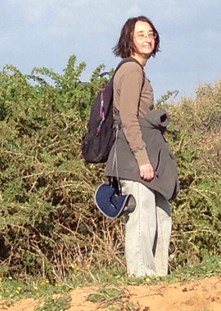'Meet the Editor' - Professor Mical Paul
Monday, 23 May 2016In the third instalment of the 'Meet the Editor' feature, we talk with Prof Mical Paul.
Could you describe where you currently work and what you do there?
I head the division of infectious diseases at Rambam Health Care Campus, a primary and tertiary care hospital located in Northern Israel. I also work at the refugee clinic, which is a voluntary organization providing health care to refugees with no medical insurance.
What is a typical day for you?
Consultations for patients hospitalized in all departments in the hospital and outpatient clinics. Focus on surgical wards and intensive care units. Care of patients is primary, but not least important are initiatives to promote antibiotic stewardship, good infection control practices and infection prevention modalities across the hospital. These are done via surveillance and reporting of performance, writing and implementation of guidelines, educational activities across the hospital. All this combined with clinical research to address questions that come up in clinical practice.
The refugee clinic is located in Tel-Aviv and sees young adults and many children from Sudan and Erythrea mainly, who have no medical insurance.
What prompted you to work in this area?
I see healthcare-associated and hospital-acquired infections as preventable, lethal, adverse events. The goal of my work is to target zero tolerance for such events and promote a safer environment for patients in hospitals.
I see it as an obligation for healthcare professionals to assist persons without access to the public healthcare system. Unfortunately, without appropriate diagnostics, medications, follow-up and access to a multidisciplinary medical system it is difficult to us nowadays to provide adequate medical care.
What are the major challenges that still remain in your field?
Hospital-acquired infections are amongst the primary preventable cause of death both in low and high socioeconomic countries. These increase with medical advance: complex surgery, better treatments against cancer and with the aging population.
Management of community-acquired infections is a priority since these should be completely reversible conditions for which, again, zero tolerance for an adverse outcome should be accepted.
How did you first hear about Cochrane?
From my mentor when attempting to perform my first systematic review.
What is the most rewarding aspect of being involved with Cochrane?
Having access to guidance on the optimal methodology of performing a systematic reviews and risk of bias assessment of clinical studies.
Who (or what) has been the biggest influence on your career to date?
Performing systematic reviews has taught me the principles of evidence-based medicine and design issues of clinical studies that serves me to date in clinical practice and all fields of research.
Please list three words you would associate with Cochrane.
Evidence based medicine
What do you do in your spare time?
Hiking, reading
The CIDG editorial base is located at the Liverpool School of Tropical Medicine in Liverpool, UK. The CIDG is led by Professor Paul Garner (Co-ordinating Editor) and Anne-Marie Stephani (Managing Editor). Over 600 authors from some 52 countries contribute to the preparation of the Cochrane Reviews. They are supported by an international team of Editors, each with topic or methodological expertise.
The CIDG’s main areas of work are on determination of the effects of interventions on the prevention or treatment infectious diseases of relevance to the United Nations Sustainable Development Goals, particularly malaria, tuberculosis, HIV/AIDS, and neglected tropical diseases. The aims of the CIDG are to impact on policy and research in tropical diseases through the production of high quality and relevant systematic reviews, and to lead developments in review quality improvement and effective dissemination of findings.
